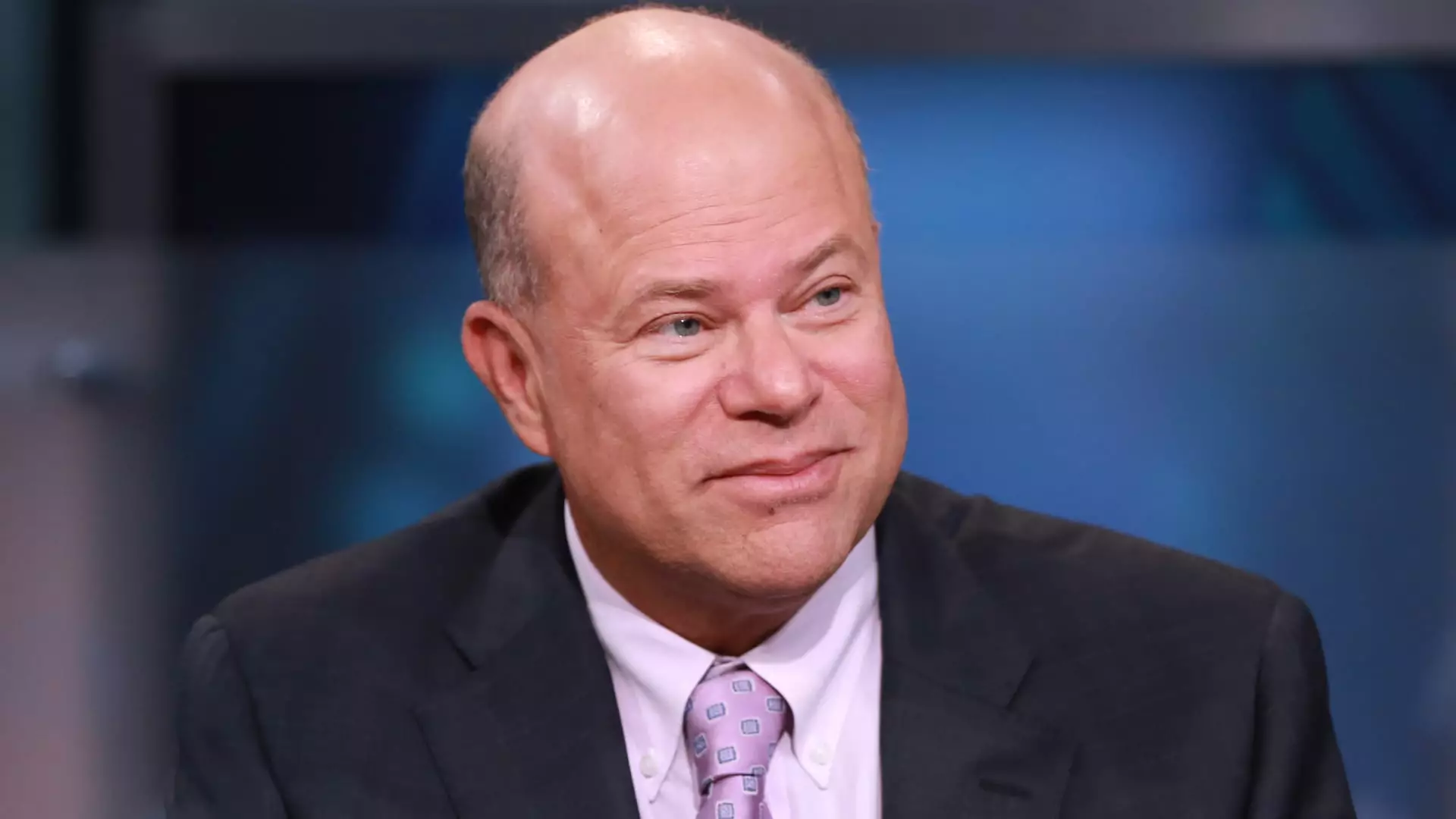In the world of finance, the Federal Reserve’s statements and actions hold paramount importance, significantly influencing investors’ decisions. David Tepper, the head of Appaloosa Management, emphasized this point during a recent interview on CNBC’s “Squawk Box.” Tepper expressed faith in the Fed’s commitment to lowering interest rates, arguing that such actions are crucial for the central bank to maintain its credibility. His insights suggest that when officials make pronouncements about future monetary policy, investors should take them seriously. This perspective raises critical questions about the very nature of central banking: how important is it for a central bank to follow through on its promises?
Tepper highlights Federal Reserve Chair Jerome Powell’s recent communication, suggesting that a “recalibration” of interest rates is not only likely but necessary. His belief in the Fed’s future actions stems from the understanding that failing to act on stated intentions could undermine public confidence in the institution. By dissecting Tepper’s arguments, one discernibly finds the essence of monetary policy’s influence over market stability, emphasizing how Fed signals can drive investor behavior significantly.
Recently, the Federal Reserve instituted a notable reduction of half a percentage point in benchmark interest rates—marking the beginning of its first easing cycle in four years. This might come as a surprise considering the seemingly stable economic indicators, such as consumer spending and steady GDP growth. The Atlanta Fed anticipates a remarkable growth rate of 3% for the third quarter, challenging the logic behind such aggressive monetary policy shifts. The juxtaposition of low unemployment and robust economic indicators with the decision to cut rates opens a discussion about the Fed’s stance—are they reacting proactively to potential threats or are they overstepping given the positive trends?
Tepper fears that easing monetary policy in a solid economic environment could repeat the mistakes made during the late 1990s, when the Fed cut rates despite a healthy backdrop. His references to historical precedents underline a notable skepticism towards the implications of such expansions in a predictably thriving economy. In light of these connections, it is imperative to consider how these monetary decisions can engender unintended consequences, such as asset bubbles or overly inflated markets.
Despite his reluctance about the current U.S. market valuations, Tepper acknowledges that halting investments would be ill-advised. With the backdrop of easy money policies, he affirms that steering clear of U.S. equities could be perilous due to the potential rewards enshrined within such economic conditions. Tepper’s admission encapsulates a duality present in financial markets: the tension between principle-based investing, which considers value, and the necessity of seizing opportunities that a stimulating monetary policy can provide.
This debate reveals undercurrents of complexity in investment strategies where value judgments might clash with temporarily advantageous environments created by the Fed. Therefore, even as Tepper expresses discomfort with elevated market valuations, his willingness to maintain a stake in U.S. stocks exemplifies the push and pull felt by many investors navigating these tumultuous waters.
Shifting Focus: Tepper’s Interest in Global Markets
Interestingly, beyond the U.S. market, Tepper is pivoting toward opportunities in international equities, particularly in China and other Asian markets. His move reflects an anticipation of potential growth driven by favorable governmental policies aimed at reviving struggling economies. By favoring Asian and European stocks over U.S. equities, Tepper is signaling a significant shift in his investment focus. This raises important questions about the global landscape—where are the new opportunities and what factors are driving those markets?
Tepper’s strategy aligns with the broader trend where investors are increasingly looking outside the U.S. to diversify their portfolios, seeking better valuations and growth potential in emerging markets. His approach serves as a reminder that while the Fed’s actions in the domestic arena dominate headlines, the interconnectedness of global economies remains a fertile ground for investment exploration.
David Tepper’s opinions provide vital insights into the prevailing market conditions shaped by Federal Reserve’s policies. His emphasis on credibility, caution regarding U.S. equities, and interest in non-U.S. markets illuminate the dynamic interplay of factors affecting investment strategies in today’s complex financial landscape.

